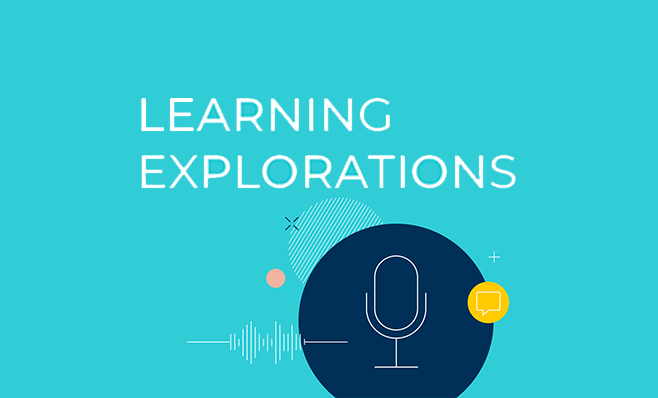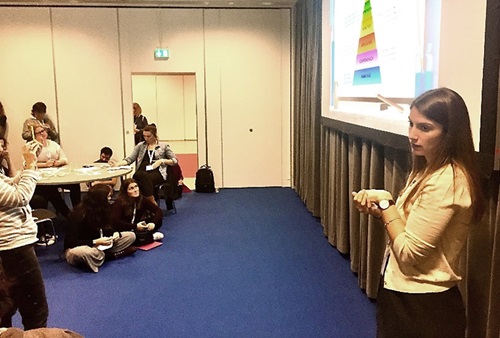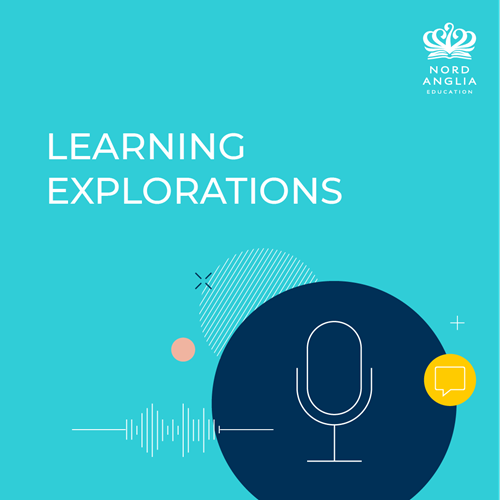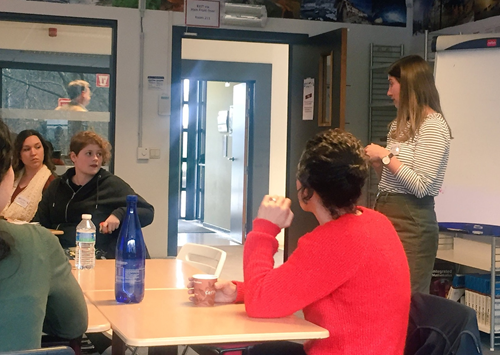We use cookies to improve your online experiences. To learn more and choose your cookies options, please refer to our cookie policy.

My name’s Emily Murphy and I’m part of Nord Anglia’s Education Team working on our edtech programme.
But before I go any further, let me share about why I became a teacher and take you back to my sophomore year in university. The scene is Tacoma, Washington, where I was a 19-year-old English major with a huge love for reading. One weekend, I happened to volunteer at a local juvenile detention centre where I met with teenagers who weren’t able to attend school anymore due to being in the centre. I visited week after week, mainly helping with their reading and schoolwork.
This period was honestly a powerful and eye-opening time for me and ended up nurturing my new-found love for teaching. I also became fascinated by how we could make education more equitable for everyone, regardless of their circumstances, and my career over the past 13 years has been focussed on using technology to this end. And that brings me to my role here at Nord Anglia, where I’m a manager of training and development as part of our edtech programme.

Apart from my day-to-day role, I also host an education-themed podcast for Nord Anglia called “Learning Explorations”, which is all about innovation in education given the rapid changes as we move into an unknown future. I listen to a lot of podcasts, but I never imagined I’d actually be hosting one until now, so let me tell you more about it.
What I really want to achieve with Learning Explorations is to give listeners access to some of the greatest thinkers in education, including Kate Robinson, Joseph South, Dr Jo Boaler, and Professor Rose Luckin. They’re some of my personal role models and have transformed the way I think and teach.
I’m sure you’ll agree that concepts such as edtech and AI can feel daunting, especially for teachers and parents who have a lot on their plate already, so the podcast aims to make these topics more accessible. It’s not just about edtech; it’s about driving change in education overall. We all know the stakes are sky high in schools, so I hope you can feel their enthusiasm for making a change if you tune in on Spotify.

If you haven’t listened to an episode yet, here’s a whirlwind tour!
In episode 1, I spoke with Kate Robinson, who co-wrote the book “Imagine If” with her father, Sir Ken Robinson, a famous educationalist who I know has inspired countless teachers. We talked about innovation and defined it as ‘applying creativity for the sake of positive change’. When teachers are developing lesson plans, it’s important they to pause and ask: are we focusing on the right kinds of things? And do we always have that end goal of positive change in mind?
I think my biggest takeaway from episode 2, my chat with Joseph South, chief learning officer at the International Society for Technology in Education, was around reframing how we look at edtech and shifting away from algorithms to a more relationship-centric view of it. There is sometimes a slight hesitation from parents around using too much tech after COVID, but it’s about how we use it in the most meaningful ways: nurturing students instead of relying on it for everything to the point where it becomes a distraction.
Episode 3 is the one I’m most proud of so far. It features Dr Jo Boaler, a professor of mathematics education at Stanford University and one of my personal heroes. I've followed her work for years and she’s an absolute legend for her ideas around developing a growth mindset, equity in education, and how there is no such thing as a “maths person”. That we can all be good at maths wasn’t a concept I’d heard of before meeting Jo!
In fact, I was fortunate enough to take a course with her, and maths went from being my least favourite subject to teach to my all-time favourite. She also talks a lot about how some of the best mathematicians are slow and methodical thinkers — a far cry from how students are tested, which is all about how quickly they can solve equations.
Of course, one of the biggest topics in education right now is artificial intelligence thanks to ChatGPT. To dig under the skin of this, the forthcoming episode of Learning Explorations will feature Rose Luckin, who is a professor at the University College London Knowledge Lab and an advisory board member for Nord Anglia’s edtech programme. Her work focusses heavily on the design and evaluation of educational technology using all the latest techniques from AI.
When we spoke earlier this week, Rose and I discussed how AI is something that everyone should be embracing. I think we'd be doing a disservice to children if we don't really dive in to how it can enhance the work teachers do in the classroom, exploring ways it can enable excellent learning alongside the human intelligence of a teacher in a physical class.
There's incredible potential with AI, and that’s exciting. It has the capacity to transform schools by really freeing up children to focus more on their creative thinking, collaboration, and how they communicate with others. It can get us to where we want to be, but we must engage critically and be mindful of how it’s used. So, stay tuned for that episode in the coming weeks!

Just like the world’s greatest wrench could never replace a skilled plumber, the same goes for teachers with edtech or AI. It can never replace a great teacher but can powerfully enhance the work teachers are already doing.
My aim with the edtech tools across Nord Anglia is to continue making things easier for teachers — whether that’s providing insightful data at the click of a button to better meet students’ needs, or using it to simplify how we prepare for lessons. We’re already seeing this happening, with technology doing some of the heavy lifting so we can focus on being more effective teachers.
Emily Murphy is the teacher training and development manager for Nord Anglia Education’s edtech programme.
